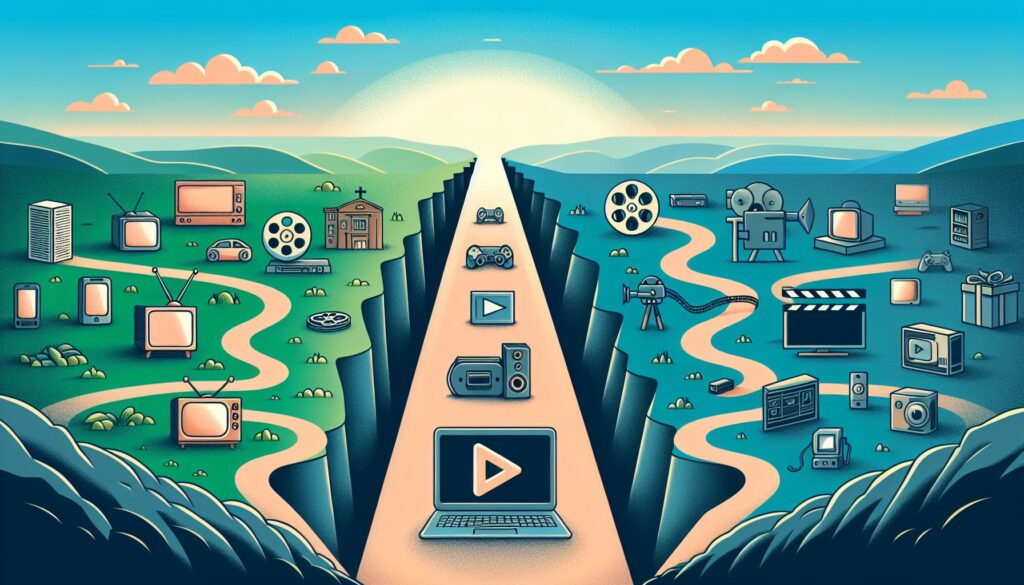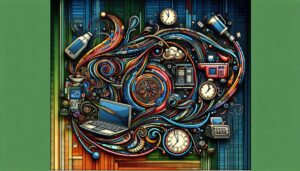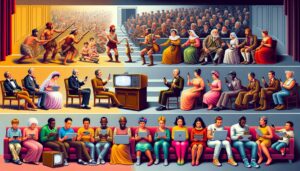The Transformation of the Entertainment Industry: Streaming’s Powerful Pathway

We live in a rapidly evolving universe of technology, where new ideas and innovations are continually transforming our lives. One of the most exciting facets of this digital revolution is its impact on the entertainment industry. This post will explore how streaming services are revolutionizing the ways we consume music and film, radically changing the industry landscape, and altering our daily entertainment habits.
 A Shift in Consumption: The Arrival of Streaming Services
A Shift in Consumption: The Arrival of Streaming Services
The olden days of dial-up internet and cable television feel like ancient history in today’s era of high-speed connectivity and on-demand entertainment. Streaming services such as Netflix, Spotify, and more recently, Disney+, have fundamentally changed our consumption dynamics. Movie buffs and music lovers who once found solace in their collections of DVDs and CDs now carry whole worlds of content in their pockets. But how does this vast availability of on-demand streaming content influence the entertainment industry?
Revolutionizing the Entertainment Industry
Streaming services have created gateway platforms for both new and established artists to connect with global audiences. Platforms such as Spotify, Apple Music, and Tidal have not only made music more accessible but have amplified artists’ reach and visibility. Musicians no longer rely solely on record sales or live performances to make a living. By enabling interactions between artists and audiences worldwide, streaming services have democratized the music industry.
In the same vein, streaming has revolutionized the film and TV industry. Netflix initiated the transition from scheduled TV shows and movie theatre releases towards personalized, on-demand content libraries. Quality television is no longer constrained to primetime slots; it is now a form of art and dialogue, reaching far beyond geographical and cultural borders.
Streaming Shaping Cultural Conversations
Perhaps the most fascinating implication of enlarging audiences’ accessibility is its transformation in shaping cultural conversations. Streaming services have the power to trend unknown indie bands, amplify social issues through documentaries, and create worldwide buzz around international TV series. Netflix’s award-winning series, “Money Heist” (La Casa de Papel), originally emerged from Spain and gained global recognition, breaking language barriers through its storytelling.
Concluding Thoughts: The Moving Streams of Change
Though this phenomenon offers vast opportunities, it is not without its challenges—oversaturation of content, the extreme competitiveness of the market, and artist compensation are issues that run side by side with the benefits. As streaming continues to transform entertainment, it will be interesting to witness the subsequent wave of innovations, and how the entertainment industry adapts to these changes.
The future of entertainment lies in the hand of every individual with a smartphone and a good internet connection. We, as consumers, have become more empowered than ever before in deciding what we want to watch, listen, or engage with. As we move forward, it is anticipated that streaming will continually transform standards of consumption and creation, steering the industry towards a more democratized and globalized horizon.
In conclusion, this digital revolution led by streaming services signals a new era in entertainment, giving power to consumers like never before, and opening infinite possibilities to artists around the world. The future is streaming, and the impact it has on our lives is just beginning to unfold. Technology has empowered us, and the influence we wield is only set to grow. This change, and our participation in it, is the moving stream that shapes the future landscape of entertainment.





